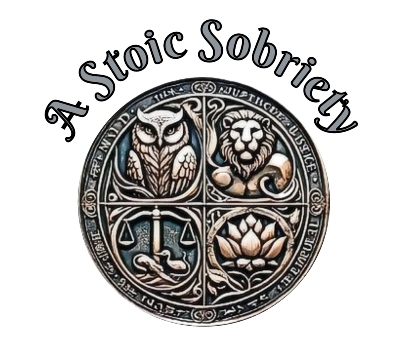Feeling lonely in sobriety is no fun but it can be overcome with a bit of courage and action. Loneliness is a common experience in early recovery from substance abuse. When we stop using drugs or alcohol, we can end up feeling socially isolated. The friends we had when we were using may no longer be around, and we might feel disconnected from others who don’t fully grasp our journey. But it’s crucial to remember that you’re not alone, and there are strategies to manage loneliness during this challenging period.
Feeling Lonely is Optional
All my friends had been close friends from elementary school, and I had zero friends who were not part of the party scene. I was also insecure and not one to make friends easily, so it took some time to find some like-minded, sober people to hang out with. Once I did find a group, recovery became much more accessible as our group did many things together outside of 12-Step meetings.
Feeling lonely is a significant theme addressed by the co-founders of Alcoholics Anonymous (AA) and in AA literature. The program emphasizes the importance of connection, community, and sharing experiences to combat the isolation often felt by those struggling with addiction. It was so important that it is emphasized in Tradition One of AA – “Our common welfare should come first; personal recovery depends upon AA unity.”
For reference, one can read Chapter 11, A Vision for You. This chapter discusses the deep loneliness that many alcoholics feel and the hope and connection found in the AA community. It emphasizes that through AA, individuals can find a sense of belonging and purpose that helps fighting loneliness.
The Stoics taught us to focus on what is within our control and accept what is not. We can control our actions, thoughts, and attitudes when feeling lonely. We cannot always control whether others are around us or how they behave, but we can control how we are combatting loneliness. The key here is to evaluate our situation, decide what we can change or control, and then take steps toward making those changes.
While much of this article recommends reaching out to others to minimize loneliness, the Stoics believe in being self-sufficient and finding contentment within us. They encouraged us to develop inner resources, such as wisdom and virtue, rather than relying on external circumstances or other people for happiness. By cultivating inner strength and resilience, we can better handle loneliness. Marcus Aurelius teaches us, “Nowhere can man find a quieter or more untroubled retreat than in his own soul.”
Practicing this self-reliance can be done with other activities involving other people to get us through a lonely period. The idea here is to continue to grow and develop tools to live life on life’s terms regardless of the circumstances. For example, you may be experiencing an episode of loneliness and are in a situation where you cannot reach out and connect with people to feel less lonely.
Fighting loneliness is made simpler when we develop our thoughts and attitudes while isolated. It does not suggest that one must be fully self-reliant in all circumstances, but it is helpful to be able to call upon our internal resources when needed.
Understanding Loneliness
Loneliness is more than being alone. It’s a feeling of being disconnected from others, even when people surround us. In early recovery, deep loneliness can be particularly intense because we are dealing with significant changes in our lives.
There are several contributors to feeling lonely when we are in recovery. I already mentioned losing old friends, which is why we feel lonely. We must keep a distance from friends who continue to drink or do drugs for us to stay sober.
We might try to convince ourselves that we can hang with these people without relapsing. AA tells us that those who fail in the program are constitutionally incapable of being honest with themselves. The risk and costs of being wrong are too high for us to be around our old crowd.
As mentioned earlier, new connections are paramount in early sobriety. Building new, sober friendships takes time but is a crucial part of the journey. Initially, it might seem like there are no new friends to fill the void left by your old ones. But with effort and time, you can start developing these new connections. Remember, there are no saints in the rooms of 12-step programs, and you’re not the first to make mistakes you’re ashamed of.
The challenge is real. We are trying to build a new, healthier lifestyle, and this can sometimes make us feel like we don’t belong anywhere. We are between worlds, and thoughts can easily sway us to be better off in the world we know versus the effort required to start anew. It is essential to recognize that what we are experiencing are feelings. Feelings only have power over us if we give it to them.
Our thoughts about these feelings can create a sense of urgency to act. Here, we have two choices. First, we can confront our thoughts, challenge the need to act, and take some time to process these feelings. Second, we can ensure that our actions are positive and productive versus self-destructive.
How to Deal with Loneliness in Early Recovery
While loneliness is a tough challenge, many ways exist to cope and build connections with others. Here are some tips to help you deal with loneliness during early recovery:
Attending 12-Step meetings – Even if you don’t engage much, simply showing up can help with combating loneliness. While it might be challenging initially, reaching out to meet people at meetings is a step towards overcoming loneliness. Action is a vital part of our journey to recovery, and it’s within our power to take it. Remember that you are not alone.
While Stoicism values self-sufficiency, as noted above, it also recognizes the importance of community and relationships. The Stoics believed that humans are social beings and that building connections with others is part of our nature. We should seek out and nurture relationships based on mutual respect and shared values.
Get Involved in New Activities – Finding new hobbies and activities can help us meet new people and positively fill our time. Join a sports team, take a class, or volunteer. These activities can help you build new, healthy friendships and give you a sense of purpose. Or get more deeply involved in current activities or hobbies. There are resources on the web like Meetup where one can connect with folks in our area who have similar interests.
Be of service to others—The Stoics emphasized living a life of purpose and meaning. Focusing on our duties and responsibilities can help us find fulfillment even in solitude. Engaging in meaningful activities, such as helping others, pursuing knowledge, or developing skills, can give us a sense of purpose and reduce feeling lonely.
Reconnect with Family and Friends—Recovery is a time to rebuild relationships with family and friends who care about you. Reach out to them and let them know how you’re doing. They can provide support and help you feel connected. It is also an excellent opportunity to reconnect with friends one may have neglected during drinking.
Talk to a Therapist – We do not have to go it alone or only use 12-step program resources to stay sober. A therapist can help you work through feeling lonely and develop strategies to cope. They can provide a safe space to discuss your experiences and offer guidance and support. There is zero shame in seeking professional help. I have done it multiple times in my sobriety and have enhanced my sobriety significantly as a result.
Practice Self-Compassion – Be kind to yourself. Understand that it’s normal to feel lonely in early recovery. Remind yourself that you’re doing something courageous and challenging and that taking things one day at a time is okay.
Engage in Reason—Reason is central to Stoic philosophy and can be helpful when fighting loneliness. We can use reason to examine our thoughts and feelings when dealing with loneliness. Are we exaggerating the situation? Are there ways we can change our perspective or take action to improve our situation? Using reason helps us approach loneliness logically rather than being overwhelmed by emotions.
Under reason, there is another shift in thinking the Stoics have to offer. They viewed solitude as an opportunity for self-reflection and growth. Famous Stoics like Seneca and Marcus Aurelius often wrote about using time alone to contemplate, meditate, and improve oneself. They saw solitude not as something to be feared but as a chance to develop inner peace and wisdom.
Final Thoughts
Loneliness in early recovery is a common challenge we can overcome by taking action. One can start building a solid support network by attending meetings, getting involved in new activities, reconnecting with loved ones, talking to a therapist, and practicing self-compassion. Remember, recovery is a journey; we don’t have to walk alone. With time and effort, you will find the connections and support you need to lead a healthy, sober life. We are not alone!
Resources
National Institute of Mental Health – Caring for Your Mental Health
Positive Psychology – Loneliness



